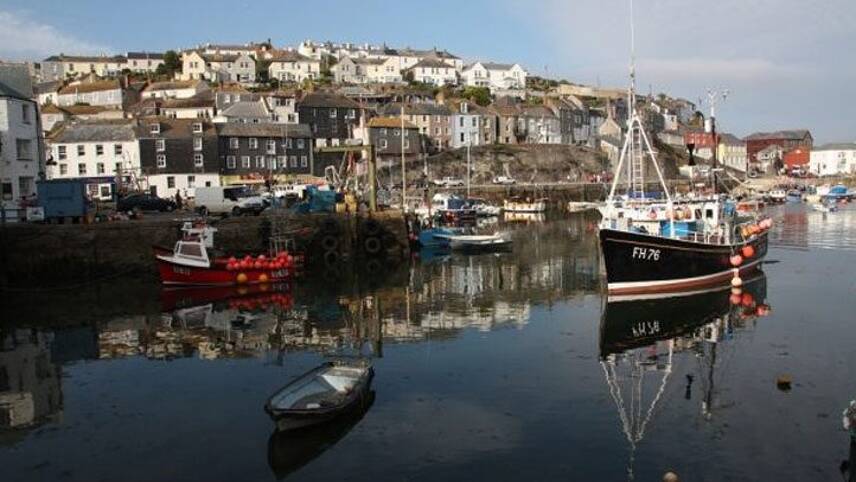Register for free and continue reading
Join our growing army of changemakers and get unlimited access to our premium content

The goeImage: Defra
The warning is being made through a new report, co-authored by the Marine Conservation Society (MCS), RSPB and WWF.
While the charities have welcomed the introduction of the UK’s post-Brexit Fisheries Act last year, the report raises concerns that, without specific time-bound targets that are mandatory, the fishing sector will contribute more than its fair share to emissions and will not be protected from the physical impacts of warming that is already baked-in.
On climate, the Act contains an objective to “minimise” the adverse impacts of climate change on the sector by increasing adaptation. It also states that the sector has a duty to create a sector that is “environmentally sustainable in the long-term”.
Starting with the industry’s contribution to climate change, the report states that the sector is producing 914,000 tonnes of CO2 each year. The main source of emissions at present is fishing fleet vessels. Almost all UK-based vessels, the report states, are powered by fossil fuels. More than 50% are 30 years old, meaning they are likely inefficient.
The report also expresses concerns that the sector, at present, is operating in a way that depletes the ability of marine habitats to sequester carbon. Carbon stored in ocean habitats is dubbed ‘blue’. The report outlines how trawler fishing has depleted carbon-sequestering habitats such as seagrass meadows and salt marshes, reducing – and sometimes ending entirely – their ability to act as carbon sinks. It also warns that the blue carbon stored in fish and shellfish themselves is not properly looped back into the ecosystem with industrial fishing; carcasses that would usually sink are processed on land as waste from the sector.
“Governments have generally been slow to acknowledge the fishing industry’s impact on GHG emissions and blue carbon stores,” the report states. “Fisheries are commonly missed from assessments of GHGs, not considered in climate change mitigation strategies and are largely ignored during climate negotiations.”
Climate adaptation through nature-based solutions
The report goes on to emphasise how fisheries, like all marine areas, are exposed to risks from poor climate adaptation.
The Intergovernmental Panel on Climate Change’s (IPCC) recent report confirmed that the global temperature increase has already passed 1.1C and is heading for 1.5C by 2040; a certain level of change is to be expected regardless of decarbonisation over the coming years. On a national level, the UK’s Climate Change Committee (CCC) recently warned that 60% of the climate risks facing the UK are classed as requiring the highest level or urgency, up from 36% at the last assessment in 2016. No risks have decreased in urgency. Many are related to marine environments and coastal communities.
Posited in the report is the need to restore and conserve ecosystems, as this helps boost resilience as well as increasing blue carbon sequestration.
To the latter point, the report states that 55% of all carbon captured by plants globally is captured in marine habitats. It also claims that, globally, coastal ecosystems capture amounts of carbon each year comparable to all land-based ecosystems.
Despite this huge potential, the charities are warning that nature-based solutions focused on blue carbon sequestration and marine habitats are receiving only a small fraction of the funding available. At present, they claim, most financing from governments and the private sector is being funnelled into terrestrial projects.
The report ultimately sets out a set of policy principles for creating ‘climate-smart’ fisheries that are resilient from climate risks and low-carbon in operation. Policymakers are urged to set specific, time-bound and mandatory targets for protecting blue carbon and decarbonising fleets, with specific financial supports to businesses coupled with the removal of current supports for high-carbon fuels. Another mandate could require vessels fishing in UK waters to fit cameras and to track their emissions and bycatch.
Policymakers are also called upon to increase the extent of blue carbon field surveys in the UK, potentially introducing a national study and monitoring programme. The results of these activities could help the UK assess whether it can add blue carbon as a climate mitigation tool within its Paris Agreement commitment.
Between 2010 and 2019, the UK Government met just four out of 15 indicators required for healthy oceans. Its UK Marine Strategy, published in May 2019, was designed to help accelerate positive progress against these indicators, but was widely criticised by nature charities and green groups. Building on the UK Government’s Fisheries Act, a Joint Fisheries Statement from all four UK governments is now due ahead of COP26.
“The ocean is the blue heart of our planet and, when it comes to tackling the climate and nature crises, we ignore it at our peril,” WWF’s fisheries programme lead Helen McLachlan said.
“As an independent coastal state, the UK has the chance to set a gold standard in fisheries management by delivering on the world-leading climate commitments set out in the UK Fisheries Act 2020 – ministers must make good on that promise.
“Adopting a climate-smart strategy is the way to do this, futureproofing the sector while showcasing the UK’s commitment to slashing its global environmental footprint ahead of COP26. We won’t forget the UK governments’ climate promises and, together with our supporters, we will hold governments to account for delivering on them.”
Sarah George


Please login or Register to leave a comment.